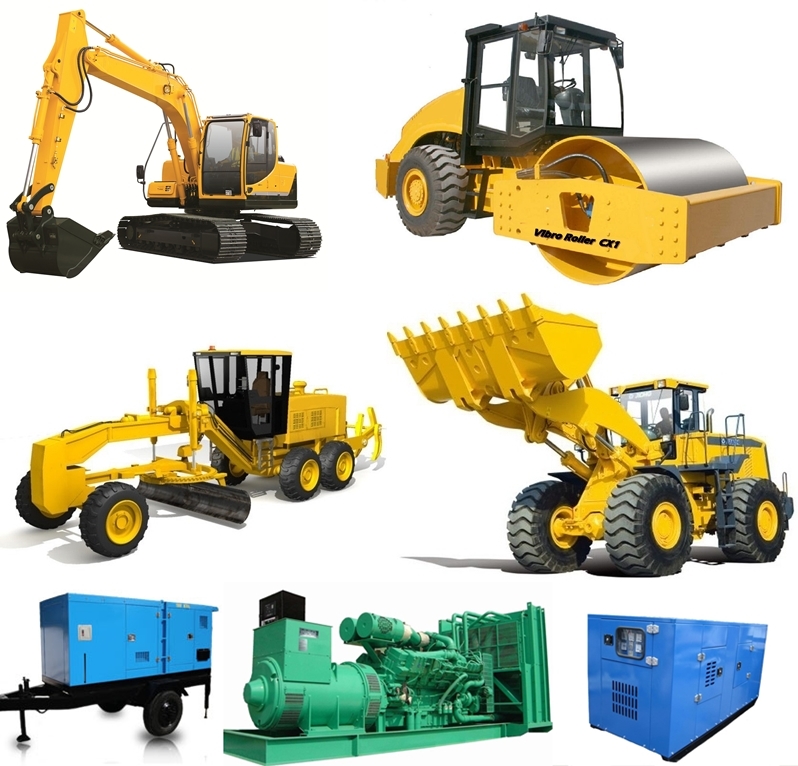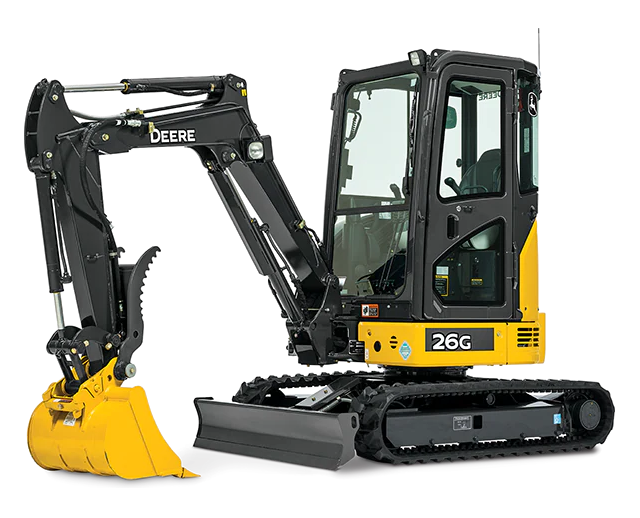Heavy Equipment Rental: Large Machinery for Any Construction Task
Heavy Equipment Rental: Large Machinery for Any Construction Task
Blog Article
Maximize Your Budget by Understanding the Prices Linked With Building And Construction Devices Rentals
Understanding the complete extent of costs connected with building equipment rentals is crucial for optimizing your budget. While the initial rental charge might seem straightforward, various extra expenses-- such as transport, gas surcharges, and upkeep-- can swiftly build up, influencing your monetary planning. Being mindful of numerous fees and the intricacies of rental contracts can help prevent unexpected economic concerns. What approaches can be utilized to effectively take care of these expenses and make certain a much more efficient rental experience?
Overview of Rental Costs
When thinking about construction tools services, understanding the associated costs is extremely important for efficient budgeting and project planning. Rental costs can vary substantially based on a number of variables, consisting of tools kind, period of service, and location. The preliminary rental cost usually reflects the tools's market demand and its associated operational capabilities, affecting the overall expense.
In addition to the base rental price, ancillary expenses may arise, such as transport costs, fuel additional charges, and upkeep charges. It is essential to represent these added expenses to precisely assess the total expense of renting out equipment. The rental duration can influence pricing; longer leasings might certify for discounted rates, while temporary services could sustain higher daily fees.

Malfunction of Rental Rates
An extensive understanding of rental prices is important for professionals and task supervisors intending to enhance their budget plans. Rental rates for construction equipment typically contain numerous parts, consisting of base prices, time-based charges, and usage costs.
Base prices are the core fees connected with the rental of the equipment, usually determined by the type and dimension of the machinery. These rates can differ significantly, affected by aspects such as devices demand, schedule, and local market trends. Time-based charges, which may be daily, weekly, or monthly, offer to fit different project timelines and rental periods.
In addition, rental prices may include usage fees, which are applicable when tools is made use of beyond a defined limit, making sure that the rental business can represent deterioration. Seasonal demand changes can likewise affect rental prices, with peak building and construction periods typically commanding greater rates.
In addition, understanding the rental business's policies relating to upkeep and insurance can offer additional understanding into the overall cost structure. By examining these elements, specialists can make educated decisions, guaranteeing the selection of rental equipment aligns with both job demands and budget restrictions.
Extra Charges to Consider
Understanding the intricacies of additional charges see post is vital for service providers to manage their overall rental costs successfully. Past the typical rental rates, various extra costs can significantly affect the overall price of tools rental. These fees commonly consist of delivery and pickup fees, which can differ based upon range and logistics involved in carrying the devices to and from the task website.
Furthermore, some rental business might impose fuel surcharges if the equipment is returned with much less fuel than when leased. It is additionally vital to understand possible cleansing costs, specifically for specialized equipment that visit this website requires extensive maintenance after use.

Thoroughly reviewing the rental agreement and making clear these added charges ahead of time can aid service providers stay clear of unexpected costs and ensure that budget plans stay intact throughout the task lifecycle.
Repair And Maintenance Costs
Regular maintenance and repair service costs are typically forgotten factors that can dramatically affect the general cost of construction devices rentals. When leasing tools, it is vital to consider not just the rental costs however additionally the prospective prices associated with keeping the equipment in optimum operating condition.
Several rental companies include standard maintenance as part of the rental arrangement; however, much more unforeseen failures or extensive repair services can bring about additional expenditures. It's necessary to assess the rental contract meticulously to understand what upkeep solutions are covered and what responsibilities fall on the tenant.
Furthermore, devices that is not properly maintained can lead to ineffectiveness on duty site, possibly triggering hold-ups and increasing task costs. To alleviate these risks, it is advisable to carry out routine evaluations and keep open communication with the rental service provider pertaining to any type of concerns that develop throughout usage.
Insurance Coverage and Obligation Expenses
Insurance and responsibility expenses are vital components that can substantially impact the general expense of building equipment leasings (forklift rental). These costs make sure that both the rental business and the customer are secured from possible economic losses emerging from crashes, damages, or burglary during the rental period

Additionally, customers should know any kind of deductibles or exemptions in the insurance coverage, as these can impact prospective out-of-pocket expenditures. Comprehending the terms and conditions of any insurance policy coverage is crucial to avoid unforeseen prices. Eventually, budgeting for insurance coverage and liability expenses can assist guarantee a smoother rental experience and safeguard against financial dangers connected with building jobs.
Verdict
In verdict, a detailed understanding of the costs linked with building and construction tools services is crucial for reliable budget management. Inevitably, educated decision-making pertaining to tools services adds to the total success of building and construction ventures.
Rental expenses can differ dramatically based on several factors, including devices kind, period of service, and area (construction equipment rentals). The rental period can influence rates; longer services might certify for discounted rates, while short-term rentals might incur greater daily charges
By conducting complete research study and engaging with credible rental business, specialists can properly browse the complexities of rental prices, inevitably optimizing their economic resources.
Beyond the basic rental rates, various additional charges can significantly impact the complete cost of tools rental. Rental companies typically provide responsibility insurance policy that covers injuries to third parties or damages to property, while devices damage insurance policy can cover the expense of repair work or replacement if the rented out devices is harmed.
Report this page